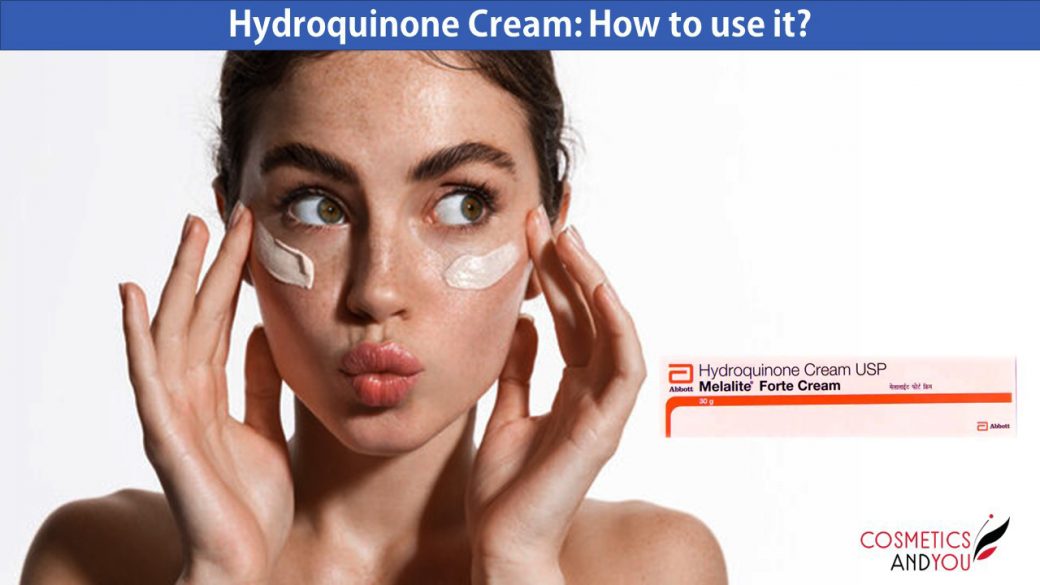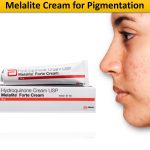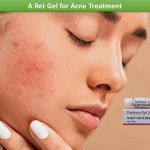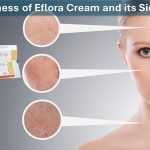For more than 40 years, hydroquinone has been used as an anti-hyperpigmentation agent. It is available in topical cream, gel, and lotion form. However, some people may develop adverse reactions, such as dry skin, when using Hydroquinone. This article investigates the various uses of Hydroquinone, its safety, and whether there is any risk to using it.
About Hydroquinone
Hydroquinone is a chemical that bleaches the skin. It is applied directly to the skin. Hydroquinone limits your melanin production, a pigment that darkens your skin. While some people use it to lighten their darker skin, hydroquinone creams are most used to lighten small dark patches like sunspots or hyperpigmentation.
How to use Hydroquinone cream?
Individuals should check if they are at risk of side effects before using a hydroquinone formulation. They can do this by applying a small amount of the product to the affected skin area. Look for signs of irritation, such as redness and itching. If you are not allergic to the product, it is usually safe to start treatment.
When applying the product, make sure the area is clean and dry. Apply a thin product layer to the affected skin and rub it well. Lastly, wash your hands thoroughly after applying the medication. This will stop your hydroquinone formulation from lightening the skin on the fingers. Repeat this process as often as your dermatologist advises.
Protect the affected areas of the skin from sunlight. This will prevent the sun from reversing the effects of this formulation. People should notice that their skin visibly becomes lighter within four weeks of using the product. If there are no changes after three months, talk to a dermatologist.
Working of Hydroquinone cream
For some people, melanocytes produce excessive amounts of melanin, resulting in dark patches of skin, a condition known as melasma. These can develop as grey-brown patches, normally on the nose, cheeks, chin, forehead, and upper lip. In some cases, dark patches may also be visible on the neck and the arms. Whatever your reasons for using a hydroquinone formulation, you must discuss the treatment with a dermatologist. The effects are not immediate, and you must apply the cream correctly for a prescribed duration. Generally, it takes around four weeks for the effects to become noticeable. However, some patients may find it takes longer to see visible results with even the best hydroquinone formulation.
Sun exposure may reverse the effects of Hydroquinone. Dermatologists recommend that people who use this product should also use a strong sunscreen. When an individual applies Hydroquinone to the skin, it reduces the number of melanocytes. Fewer melanocytes mean that the body creates less melanin in the treated area. A Melalite forte cream hydroquinone formulation may make your skin more sensitive to weather extremes such as cold and wind. Protect your skin with clothing and use a good quality moisturizer as needed. Also, avoid getting the medicine into your eyes, nasal membranes, and mouth. This medication with benzoyl peroxide, hydrogen peroxide, or other peroxide products may stain your skin. This staining can usually be removed with soap and water. Avoid using skincare items that can bring irritation, such as harsh soaps, skin cleansers, hair coloring chemicals, hair removers, waxes, or skin care products with alcohol, spices, lime, or astringent.
The skin conditions Hydroquinone works in
The most common use of Hydroquinone cream is to treat skin conditions that cause hyperpigmentation. These conditions include melasma, acne scars, age spots, freckles, psoriasis, and eczema marks. Hydroquinone can help with old scars but can’t work if an active breakout contributes to redness and darkness.
The safety efficacy of Hydroquinone cream
In general, Hydroquinone is safe. However, if you have dry or sensitive skin, there is a risk of further dryness or irritation. For people with dark skin, applying Hydroquinone can even worsen pigmentation. Besides Hydroquinone, your product may contain inactive ingredients such as sulfites that alleviate allergic reactions. Medical advice should be sought if you already have asthma or skin problems such as eczema and psoriasis.
Does Hydroquinone lighten dark patches permanently?
No, the results of any skin-lightening product that contains Hydroquinone are not permanent. The effects can be seen within a few months or years. According to medical experts, to maintain skin-lightening results, you must stick to a proper skincare routine and lead an appropriate lifestyle with sun protection measures.
Conclusion
Hydroquinone bleaches the skin. People may use it when dealing with hyperpigmentation skin conditions such as melasma, freckles, or lentigines. Those with acne scars may also try using hydroquinone-based skin-lightening creams. Hydroquinone formulations are generally safe, but long-term usage can cause unwanted effects.





